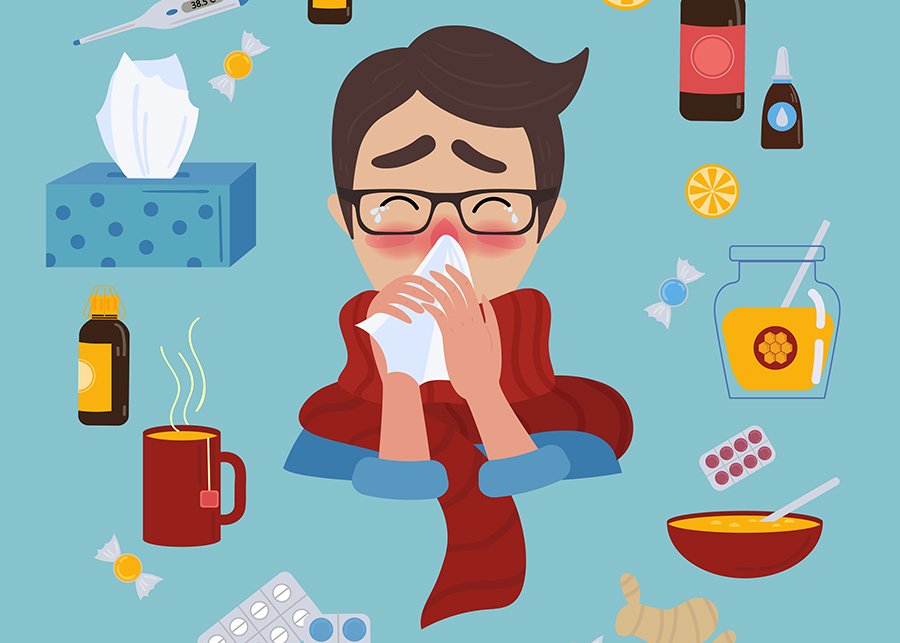
<!DOCTYPE html PUBLIC "-//W3C//DTD HTML 4.0 Transitional//EN" "http://www.w3.org/TR/REC-html40/loose.dtd“>
By Robert W. Sugerman, M.D. | Contributor
If you’ve ever been uncertain whether your symptoms of a runny nose, sneezing, and stuffiness are due to a “common cold,” environmental allergies, or sinusitis, you’re not alone. These three conditions share overlapping characteristics and can occur together or one after the other, making it challenging for even healthcare professionals to accurately identify and treat these common issues. The discussion that follows is not a substitute for professional medical advice, but it may help you decide whether to seek medical care for these bothersome conditions.
FEATURES DISTINGUISHING COLDS, ALLERGIES, & SINUSITIS
As highlighted in the following table, colds, allergies, and sinus infections have several features in common. Here are some key distinctions and additional points to consider:
• Common names for seasonal allergies such as “hay fever” and “cedar fever” can be misleading. Allergies do not actually cause fever.
• Allergies typically involve some itching, while infections (both viral and bacterial) often lead to more pain.
• Colds are caused by viruses that spread easily between individuals, whereas neither allergies nor sinus infections are contagious.
• Thick nasal discharge results from the immune response associated with allergies, viral, and bacterial upper respiratory infections. In other words, having “snot” doesn’t automatically mean you have “bacterial sinusitis.”
• Antibiotics are effective for treating bacterial infections but not for viruses or allergies. Thus, if you can convince your doctor to prescribe antibiotics between days 4 to 7 of a common cold, you might feel better in about a week. If you don’t receive antibiotics, you’ll likely feel better in a week anyway. Antibiotics won’t provide any benefit.
WHAT YOU CAN DO FOR YOURSELF:
• Saline is beneficial! Regular use of saline sprays and rinses available at local pharmacies (such as Simply Saline, NeilMed, or Neti Pot) can help clear the nose of allergens and thick mucus. None of the medications, whether over-the-counter or prescription (like antihistamines, decongestants, or antibiotics), can physically clear the nose and sinuses.
• Antihistamines can alleviate runny nose and itching. Older antihistamines (like Benadryl and Chlor-trimeton) may cause significant drowsiness and are not ideal for daytime use. Newer, non-drowsy antihistamines (like Claritin, Allegra, and Zyrtec) are less potent in relieving symptoms but are more suitable for use during the day.
• Decongestants can be used carefully. Oral decongestants (such as Sudafed) and nasal sprays (like Afrin) can provide substantial relief for congestion, but potential side effects (like heightened blood pressure from oral decongestants or worsening congestion from prolonged use of nasal sprays) should be considered.
• Nasal corticosteroid sprays are most effective when used regularly. Over-the-counter options such as Flonase, Rhinocort, and Nasacort are now available. While the packaging often recommends limiting usage to two weeks, these medications are generally safe for long-term daily use. It’s advisable to seek medical guidance for extended periods of use to control chronic allergic inflammation in the nasal passages.
STILL BOTHERED BY SINONASAL SYMPTOMS OR UNSURE OF THEIR CAUSE?
• Schedule an appointment with your primary doctor or an advanced practice clinician for further evaluation and treatment suggestions.
• Locate an Allergist: Find Relief™ at http://www.acaai.org/locate-an-allergist
Editor’s Note: Dr. Robert Sugerman specializes in allergic respiratory issues, food allergies, and primary immunodeficiency. He can be contacted at Allergy Partners of North Texas. www.allergypartners.com/northtexas






